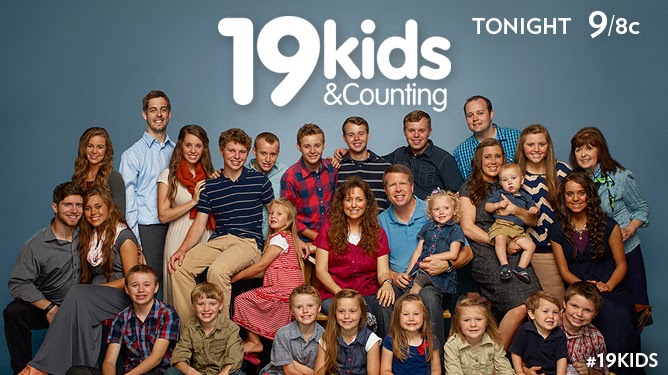
Ever dreamt of being a reality TV star? Imagine the flashing lights, the instant fame, and, of course, the potential for a massive paycheck. It’s easy to get swept up in the glitz and glamour, envisioning a life of luxury and endless opportunities. After all, reality television has launched countless careers, turning everyday people into household names and millionaires. But hold up, because beneath that shiny surface, there’s a tangled web of contracts and clauses that can turn a dream into a financial nightmare faster than you can say ‘plot twist.’
We’re talking about the not-so-glamorous reality of reality TV contracts – a labyrinth designed to protect producers and networks, often leaving participants vulnerable to significant financial losses. While the initial appeal of lucrative upfront payments and brand partnerships is undeniable, the long-term financial stability of reality stars is often precarious. Legal battles, unexpected obligations, and even the simple act of signing on the dotted line without truly understanding what you’re agreeing to can erode wealth and leave you in a worse position than when you started.
So, if you’ve ever wondered what really goes on behind the scenes, beyond the edited drama, or if you’re an aspiring star yourself, this is for you. We’re diving deep into the most insidious financial traps hidden in reality TV contracts, pulling back the curtain on the fine print that can make or break a participant’s bank account. Get ready to have your eyes opened, because understanding these pitfalls is your first step to navigating the wild world of unscripted television without losing your shirt – or your entire net worth.

1. **Precarious Initial Earnings (The Golden Handcuffs)**It sounds amazing, right? Getting paid a six-figure salary just for being yourself on TV! Shows like *The Real Housewives of Atlanta* reportedly offer lucrative upfront payments, and with brand partnerships and social media monetization on top, it seems like a fast track to wealth. Take Kenya Moore, for instance, who leveraged her visibility into a diversified portfolio spanning modeling, acting, and real estate, reportedly amassing a net worth of $10 million. It’s a compelling success story that makes reality TV look like an ultimate career launchpad.
However, this initial financial foundation is often shakier than a wobbly Jenga tower. What looks like a massive payout can quickly become a mirage when faced with the harsh realities of the industry. The context explicitly states that this financial foundation is often “precarious,” meaning it’s easily lost or diminished. It’s like getting a huge bonus, only to find out you’ve unknowingly signed up for a debt that cancels it out.
These initial earnings, while substantial, don’t account for the unforeseen costs and challenges that often plague reality TV stars. They can be quickly eaten away by legal fees, reputational damage, or simply the inability to maintain that level of income once the show’s run is over. So, while the money might seem great at first glance, it often comes with strings attached – strings that can tighten around your financial future.

2. **High Litigation Costs and Damages**Picture this: you’re riding high on reality TV fame, but then, BAM! You’re hit with a lawsuit. Legal disputes are shockingly common in the high-stakes world of unscripted content, far more so than you might imagine. A 2023 report by a legal industry analyst noted that reality TV stars face a staggering 30% higher likelihood of litigation compared to traditional celebrities, and it’s all thanks to the often adversarial nature of these shows.
These aren’t just minor disagreements; we’re talking about serious legal battles like defamation lawsuits, property conflicts, and breach-of-contract claims. And guess what? Each one comes with a hefty price tag. Court costs alone can be astronomical, not to mention the settlements you might be forced to pay. It’s a direct drain on your resources, turning what you thought was a gain into a massive loss.
Even if you win, the cost of fighting can be crippling. The process itself is a financial black hole, sucking up resources that could have been invested or saved. This risk is amplified by the way reality TV is produced, often pushing boundaries and creating conflicts that inevitably spill over into real-world legal entanglements. It’s a trap many participants fall into, not fully grasping the financial burden of defending themselves in court.
Read more about: 11 Essential Strategies for Small Businesses to Fortify Defenses Against Major Cyberattacks

3. **Reputational Damage & Lost Endorsements**Legal conflicts don’t just hit your wallet directly; they also inflict severe damage on your most valuable asset: your public image. And in the world of reality TV, your image is your currency. Once your reputation takes a hit, it can indirectly, but significantly, reduce your investment value and future earning potential. It’s like a domino effect: one lawsuit can lead to a damaged reputation, which then leads to a loss of lucrative opportunities.
Consider Kim Zolciak-Biermann, another *Real Housewives of Atlanta* alumna, who faced a defamation lawsuit. While the specifics of the case are important, the key takeaway is the public scrutiny it brought and how it diverted attention from her business endeavors. When controversies overshadow your professional achievements, brands shy away. Who wants to partner with a star embroiled in a messy legal battle?
An analysis from 2025 (as cited in the context) on celebrity brand partnerships revealed a stark truth: stars with a history of litigation were 60% less likely to secure high-profile deals compared to their peers. This means that even if you weather the legal storm, the stain on your reputation can cost you millions in endorsements and future media roles. It’s a silent, insidious financial trap that can linger long after the court papers are filed.
Read more about: Behind the Blunders: 8 Celebrity Endorsement Disasters That Spiraled into Lawsuits and Left Brands Reeling

4. **Long-Term Financial Obligations from Settlements/Injunctions**So, you’ve settled a lawsuit, breathed a sigh of relief, and moved on, right? Not so fast. The financial traps of reality TV often extend far beyond the initial court costs. Settlements and injunctions frequently come with long-term obligations that can continue to drain your finances for years to come. These aren’t one-time payments; they can be ongoing damages or restrictive non-disclosure agreements (NDAs) that handcuff your financial flexibility.
Imagine being required to pay ongoing damages, essentially a steady stream of your earnings going to someone else, all because of a past dispute. This can drastically limit your disposable income and your ability to invest in your future. Even NDAs, while seemingly about secrecy, can have significant financial implications if they prevent you from discussing certain topics or pursuing specific career paths that might be lucrative but violate the agreement.
A 2024 study on celebrity bankruptcy trends highlighted this danger, finding that 40% of reality TV stars who entered legal disputes within five years of their show’s finale experienced a 50% or greater decline in net worth. This isn’t just about making a payment; it’s about how these long-term obligations can fundamentally alter your financial trajectory, leaving you struggling years down the line when the initial fame has faded.

5. **Lack of Post-Show Career Diversification**The cameras stop rolling, the season ends, and suddenly, you’re just another former reality TV star. What happens next is crucial for your financial health. Many participants believe their fame will last forever, but the reality is, it’s often fleeting. The most financially resilient former TLC stars share a common trait: they strategically diversify their careers. Those who transition into stable industries like real estate, fashion, or media tend to stabilize their wealth, creating multiple income streams.
Take Kenya Moore again, whose real estate investments provided a steady income stream, insulating her from the unpredictable volatility of reality TV earnings. This is the smart play. Conversely, stars who fail to build sustainable post-show careers often face severe financial instability. They become entirely reliant on the diminishing returns of their past fame, which is a dangerous game to play.
Without diversification, you’re putting all your financial eggs in one very fragile basket. The fame from a reality show can open doors, but it’s up to the individual to walk through them and build something lasting. Many get caught in the trap of thinking the show itself is their career, rather than a temporary platform, leading to significant financial struggles once the spotlight moves on.
Read more about: From Central Perk to Global Moguls: Unpacking the Inspiring Wealth Journeys of the ‘Friends’ Cast

6. **Unpaid Labor and Misclassification**This one is truly shocking and highlights a significant ethical and legal blind spot in the industry. Imagine appearing on a hit TV show for years, bringing in millions for the network, only to find out you were never paid a dime. That’s exactly what Amy Duggar King, niece of Jim Bob and Michelle Duggar from TLC’s *19 Kids and Counting*, claims happened to her. She was told the show was a “ministry, not a business,” which she now reveals led her to never receive a single paycheck for her appearances.
This raises massive red flags about unpaid labor and the misclassification of reality TV participants. Legal experts are clear: participants in profitable television programs are typically considered employees or contractors and must receive fair market compensation under U.S. labor law. As entertainment attorney Rebecca Armitage states, “If someone benefits financially from another’s unpaid work, that’s potentially a wage-and-hour violation. Family control doesn’t erase legal responsibility.”
Even if producers frame a show as a faith-based mission or a family project, if there’s commercial profit involved – with sponsors, licensing, and streaming royalties – the “ministry” defense is legally fragile. The Fair Labor Standards Act and state wage laws treat unpaid contributors to for-profit media as misclassified workers, not volunteers. Jill Duggar Dillard and her husband Derick’s quiet settlement after hiring an attorney to recover unpaid wages from TLC further illustrates that these claims are valid, and participants can and do get compensated, even years later.

7. **Signing Contracts Blindly/Lack of Independent Legal Counsel**Here’s a golden rule for life, especially in the entertainment industry: “DO NOT SIGN THIS UNTIL YOU HAVE READ IT.” Yet, so many reality TV participants, swept up in the excitement of the moment, sign legally binding contracts blindly. Amy Duggar King’s claim that she “signed a contract blindly” while her uncle managed the family’s TLC agreements is a stark reminder of this danger.
When a relative or a manager, who might have their own conflicting financial interests, handles your contract, it raises serious issues of fiduciary duty, undue influence, and informed consent. You might be agreeing to terms that are wildly unfavorable to you, giving away rights or committing to obligations you don’t fully understand, all without the objective guidance of an independent legal professional.
The context strongly advises that participants should *always* seek independent legal advice before signing any release or appearance agreement. Key areas to scrutinize include ownership of image rights, compensation terms, contract duration, and residuals. Verifying fiduciary duties is critical when a family member or manager controls the deal. Failing to do so can lead to devastating financial consequences, from insufficient pay to the loss of control over your own career and image, all because you signed on the dotted line without truly knowing what it meant.
Alright, so we’ve already peeled back the curtain on some seriously sneaky financial traps lurking in reality TV contracts, from those seemingly golden initial payouts that vanish faster than a prop on set to the absolute necessity of getting legal advice *before* you sign anything. But hold on tight, because the legal labyrinth of unscripted television has even more twists and turns designed to keep you—the aspiring star—from truly owning your image, your story, and your financial future. It’s time to dive into seven more subtle, yet equally devastating, financial pitfalls that can catch even the most enthusiastic participants off guard. Ready? Let’s go!
(2).jpg)
8. **Breaches of Fiduciary Duty by Family or Managers**Imagine this: your own family member, or a trusted manager, is the one holding the pen to your reality TV contract. Sounds comforting, right? Not always. The context paints a stark picture, noting that when a relative or manager with their own conflicting financial interests handles your contract, it raises serious issues of fiduciary duty, undue influence, and informed consent. It’s not just about trust; it’s about a legal obligation to act solely in *your* best financial interest.
The situation with Amy Duggar King and her uncle Jim Bob Duggar from *19 Kids and Counting* perfectly illustrates this. Her claim that she “signed a contract blindly” while her uncle managed the family’s TLC agreements immediately raises red flags. When faith and family hierarchy intertwine with financial dealings, fiduciary accountability becomes incredibly critical. The person in charge of managing those contracts has a legal duty to fully disclose earnings, negotiate fair terms, and protect the interests of everyone involved – especially minors.
Failing to uphold these fiduciary duties can lead to some seriously tough financial consequences. We’re talking about potential civil claims for unjust enrichment or constructive trust, which means that any profits unjustly gained at your expense could legally be clawed back. It’s a powerful reminder that family ties don’t automatically guarantee fair play when big money and television contracts are on the line.
Read more about: 13 Key Reasons Your Driver’s License Might Be Suspended in California

9. **Inadequate Child Performer Protections**For child stars in reality TV, the financial stakes are even higher, and the protections often far weaker than they should be. The Duggar family’s case once again casts a harsh light on this issue. While states like California have robust “Coogan-style laws” that mandate a portion of a child’s earnings be held in a protected trust account, many other states, like Arkansas where *19 Kids and Counting* was filmed, simply lack these equivalent safeguards.
This legislative gap leaves minor participants incredibly vulnerable. Networks and production companies, in the absence of strong state laws, might rely solely on parental consent without truly verifying that the children appearing on screen are being properly compensated. This isn’t just a moral oversight; it’s a financial one that can deny young stars the earnings they’ve rightfully accumulated.
The industry is slowly waking up to this, with observers arguing that streaming-era reality shows desperately need federal standards. These standards would ensure transparency, guarantee residuals, and establish trust accounts for minors, especially when family dynamics complicate the employer-employee relationship. Until then, it remains a glaring financial trap for the youngest faces on reality television.
Read more about: The Unseen Costs of Child Stardom: 12 Devastating ‘Investment Mistakes’ That Shook Hollywood

10. **The Grip of Oppressive Arbitration Clauses**Ever wonder why you don’t hear about more reality TV lawsuits making headlines? For a long time, it was thanks to arbitration clauses – those seemingly harmless paragraphs buried deep in contracts. These clauses traditionally forced any disputes, whether about wages, contract terms, or even personal grievances, to be resolved in private, away from public eyes. Essentially, cast members were compelled into a confidential arbitration process, often favoring the producers.
This setup meant that if you had a serious issue, you couldn’t take it to a public courtroom. Instead, you’d go through a private arbiter, and the outcome would stay under wraps, protected by those ubiquitous non-disclosure agreements (NDAs). The traditional stance of the Federal Arbitration Act created a strong presumption in favor of upholding these arbitration agreements, making them incredibly difficult for participants to bypass, regardless of the severity of their claims.
The financial implication here is huge: without the transparency of public courts, power imbalances often go unchecked. Production companies could quietly settle disputes or manage issues without facing public scrutiny, which could lead to fewer changes in their practices and continued contractual traps for future participants. It meant that the financial impact of their actions remained hidden.
_Film_Poster.jpg)
11. **The Seismic Shift: The Ending Forced Arbitration Act (EFAA)**Just when you thought those arbitration clauses were ironclad, a game-changer arrived: the Ending Forced Arbitration of Sexual Assault and Sexual Harassment Act (EFAA) of 2021. This federal law marks a significant shift, directly invalidating arbitration agreements in cases that involve allegations of ual harassment or assault. Suddenly, claimants are freed from the shackles of mandatory arbitration for these specific types of claims.
The Tran Dang case from *Love Is Blind* is a prime example of the EFAA in action. Dang sued the production company, alleging ual assault by a fellow cast member. When the company tried to force arbitration based on her contract, both a state trial court and the Texas Court of Appeals said, “Nope!” They ruled that the EFAA applies whenever sexual assault allegations are present, regardless of who the perpetrator is. This means disputes that used to be hidden can now come to light in public courts.
This is huge for reality TV participants. It challenges the enforceability of a core principle of arbitration, allowing certain serious claims to bypass those previously unshakeable agreements. For production companies, it’s a seismic shift, forcing them to rethink their dispute resolution strategies, and for participants, it opens a vital door to public justice and greater financial accountability for wrongs committed.

12. **Creative Control and the Risk of Misrepresentation**You might think you’re signing up to be “yourself” on reality TV, but there’s a huge asterisk attached: producers wield immense creative control over your story. The contract, specifically the Participation Agreement, outlines your roles and responsibilities, but what it doesn’t always explicitly detail is the full extent of editing and narrative shaping that will occur. This can lead to portrayals that are far from your authentic self and carry significant financial and reputational risks.
The context warns that “cast members can find themselves portrayed in ways they never intended, which can lead to severe consequences in their personal and professional lives.” Imagine being edited to look like the villain, the lazy one, or the overly dramatic character. Such misrepresentation can devastate your public image, making it incredibly difficult to secure endorsements, find future work, or even maintain personal relationships. Your investment value, built on your public persona, can plummet.
Ensuring clear terms in your contract regarding portrayal and editing is absolutely crucial to mitigate this risk. While producers will always have creative license, understanding the narrative they intend to project and having some protective clauses can save you from severe reputational harm – which, as we’ve seen, directly translates into financial loss. Without careful consideration here, you’re essentially handing over control of your public identity and, by extension, your financial future.
Read more about: 15 Essential Questions to Unmask Shady Used Car Dealers and Save Thousands in Minutes
So, there you have it: 14 financial traps that highlight the complex, often challenging reality behind the glitzy facade of reality TV. From the initial contracts to the aftermath of fame, every step can be fraught with peril for the unprepared participant. But armed with this knowledge, you’re not just a viewer anymore; you’re an informed observer, capable of understanding the true stakes. For anyone dreaming of their moment in the spotlight, remember that understanding the fine print isn’t just smart—it’s absolutely essential to safeguard your financial future and make sure your reality TV journey is a success story, not a cautionary tale. Here’s to making informed decisions and thriving, both on and off-screen!



